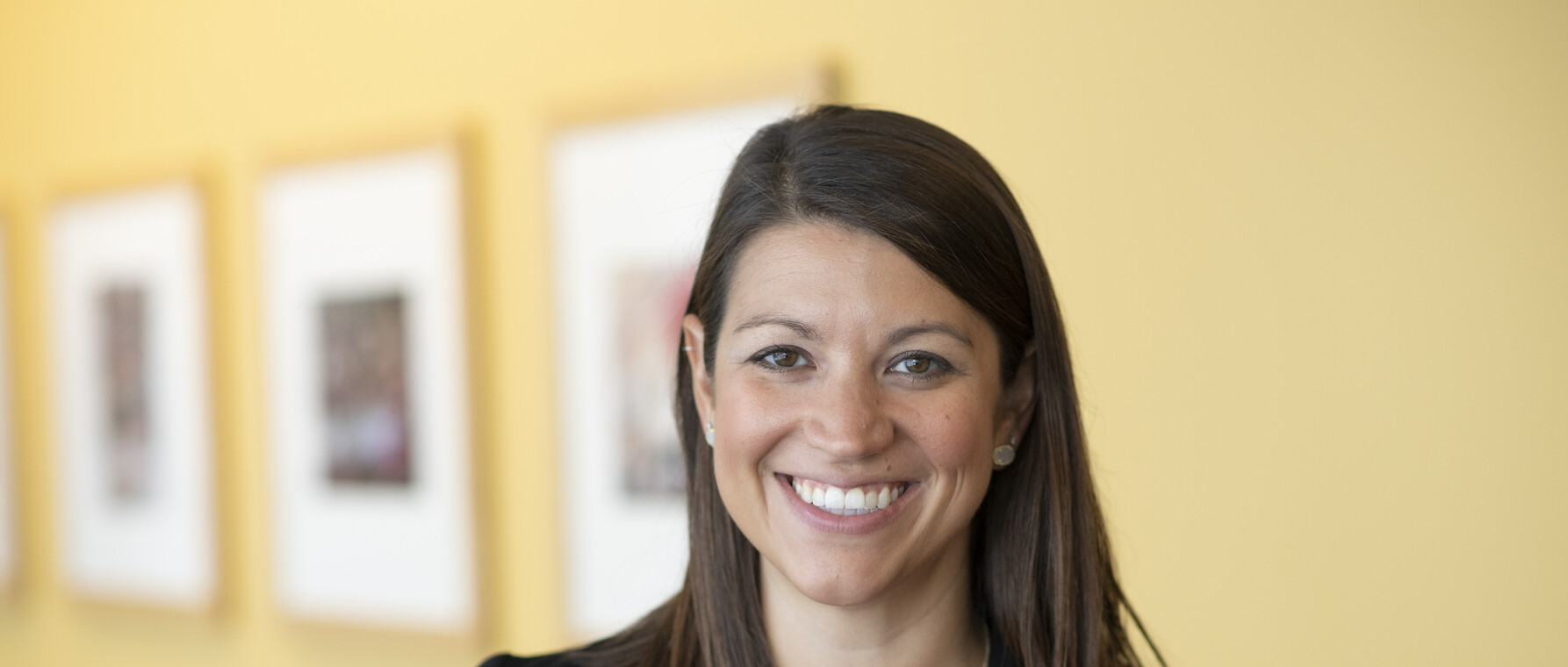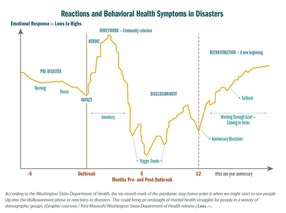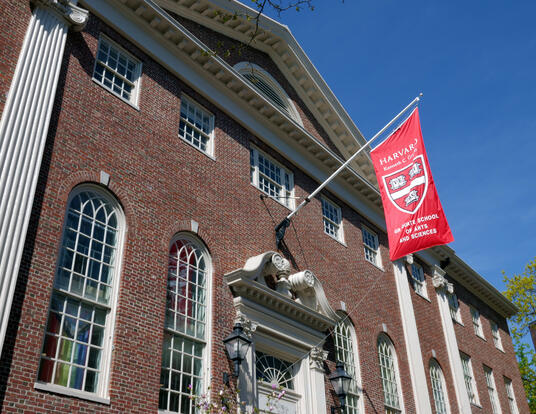B-2 B-Well: The Six-Month Wall & Leaning in to Uncertainty

As I sit in front of my keyboard, trying to write November’s B-2 B-Well article, it feels like words are almost out of reach. Writer’s block, anyone? I’m certain none of you can relate to that (just kidding!).
Initially, we might chalk our struggles up to a wild election season, daylight savings, or colder weather. As I was noticing these patterns, not just with myself but with graduate students, colleagues, family, and friends, I started wondering if perhaps it might be more than that. I did some Googling and learned of a phenomenon called the “six-month wall”.
We are now six months and counting into our unprecedented and uncertain journey with COVID-19. While we first adjusted to our “new normal” and may have even been able to focus on some positive changes, we eventually hit a wall. As a student, you may feel like you’ve run out of steam with research or writing or tired of wanting to connect with others via Zoom. Maybe you are thinking less about adapting and more about escaping. Aisha Ahmad, a professor of political science at the University of Toronto, studied the phenomenon of hitting a wall six months into a crisis while conducting long-term research assignments in disaster zones. She notes that “the desire to ‘get away’ or ‘make it stop’ is intense. I’ve done this many times, and at six months, it’s like clockwork”.
I don’t know about you, but just hearing that these feelings of “stuckness” are normal gave me a sense of relief! As someone who thrives on having a detailed plan, a clear backup plan, and a defined endpoint for situations, I was certainly feeling exhausted from all this leaning into uncertainty, and I’m sure many of you are as well. It’s only natural. Acknowledging that six-month wall is, in a way, liberating. It causes us to pause, reflect, then think of a new way forward.
At the end of the day, leaning into uncertainty is one of the most effective tools we have for getting through this ongoing pandemic. And, although it may also help to know this is temporary, finding new ways to adapt during uncertainty is a skill that we will find helpful for the rest of our lives. Minus a crystal ball, we can rely on these skills to help us break through the wall and regain our momentum.

This graphic from the Washington State Department of Health demonstrating the highs and lows of our communal emotional response struck me. (It may feel a bit too familiar to the PhD students out there!). We may be in a dip right now, but reconstruction with a new beginning—and appreciation for so many things we may have taken for granted—is on the horizon.
So, as I often ask graduate students, what options do we have to help us navigate these feelings? Who from your village can help you? What’s next? We still don’t know for sure, but I hope some of the tips below can inspire you to trust the process and keep leaning into uncertainty.
Engage with Resources
Do you often feel that your emotions, thoughts, and actions are beyond your control? Are you looking for more effective ways to manage or reduce anxiety, sadness, anger, stress, or avoidance? Consider joining the popular CAMHS group, Managing Emotions, with its new meeting time on Fridays from 1:00-2:30 p.m. ET. If you’re living and working outside of the U.S., consider the International Managing Emotions group on Tuesdays from 8:00-9:30 a.m. ET. And don’t forget to check out the other workshops and groups at CAMHS.
There are plenty of other academic and personal resources that can help you get unstuck at GSAS—and beyond. If you don’t know where to start, come visit with me at the Office of Student Services.
Create and Use Your Web of Support
Who is in your village? You know, those people that help you feel balanced and offer you support. Be intentional about who you reach out to. Also, how are you making meaningful connections? If you’re not sure where to start, find ways to get connected to peers on the GSAS Engage website.
Fill Your Own Gas Tank
It’s impossible to move forward on an empty gas tank. Figure out what aspects of the wellness wheel give you energy. Is it exercise? Connecting with friends or family? A hobby or favorite activity? Quiet reflection or journaling? Take some time to focus on things that are low effort and bring you joy.
Find Inner Peace and Strength for Your Journey
This can be the most challenging at times, but necessary for all humankind. Ask yourself, when do you find yourself most at peace, especially during uncertainty? What words or sounds inspire you or give you strength? For some, it may be a poem, such as Wendell Berry’s “The Peace of Wild Things”, a prayer, such as the Serenity Prayer, a word, a quote, a phrase, or a lyric.
Email stuserv@fas.harvard.edu to share how you are leaning into uncertainty. Remember to be kind to and take good care of yourself. And remember to virtually visit B-2 and B-Well!
Get the Latest Updates
Join Our Newsletter
Subscribe to Colloquy Podcast
Simplecast Stitcher





